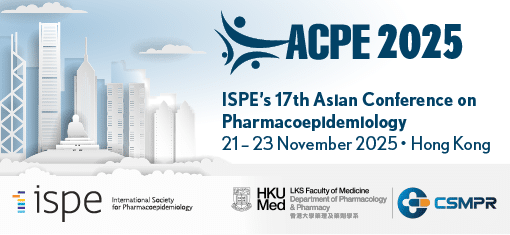Plenary speakers
Introducing our esteemed plenary speakers, poised to enrich the ACPE2025 conference program with their unparalleled insights and expertise.
More speakers will be announced over the coming weeks.

Dr Amy H Y Chan
Associate Professor, School of Pharmacy
The University of Auckland
Dr Amy H Y Chan
Dr Chan is an Associate Professor at The University of Auckland School of Pharmacy and co-lead of their Medicines intelligence group. She is a clinical pharmacist with over 15 years’ experience working in the public hospital sector, where she led one of the clinical pharmacy teams. Dr Chan has nearly 20 years’ clinical and research experience working in the public sector, and has particular interest in understanding how digital innovations can improve medicines use and health outcomes. She is currently involved in leading several large programmes of work relating to the evaluation of health interventions, use of big data and digital technology to improve healthcare delivery. Amy been involved in over 80 different health research projects and has influenced policy at a national and international level including global health guidelines and civil society policies. Amy also holds Minister-appointed positions on national boards and committees and provides consultancy to charities, medical research organisations, non-government organisations and global health organisations including WHO, FIP and CPA.
Digital tools for decentralized trials and digital endpoints
The availability of digital tools will completely revolutionise the conduct of clinical trials and future pharmacoepidemiology studies. Digital tools have allowed the creation of digital endpoints and the conduct of decentralised clinical trials (DCTs). These are poised to fundamentally reshape pharmacoepidemiology research and analysis and health research. By leveraging digital technologies—such as wearable sensors, mobile apps, and remote monitoring devices—researchers can now continuously collect high-quality, real-world data on patient outcomes directly from participants in their natural environments, rather than relying solely on clinic visits which are often episodic and infrequent. This shift enables a more authentic and granular understanding of how patients feel, function, and behave in their everyday lives, providing valuable insights into disease burden and treatment effects that previously were not visible nor accessible to researchers. For pharmacoepidemiologists, these innovations offer several key advantages. First, digital endpoints facilitate more efficient and accurate screening, earlier disease detection, and continuous monitoring, which can improve the sensitivity and relevance of outcome measures. The increased volume and diversity of data generated through DCTs also allow for more robust statistical analyses, supporting adaptive trial designs and more nuanced subgroup analyses. Decentralised approaches expand access to broader and more diverse populations, enhancing the generalizability of findings and reducing traditional barriers related to geography and clinic access. However, these advances also introduce new analytical challenges. The remote and continuous nature of data collection requires rigorous attention to data integrity, privacy, and management, as well as sophisticated statistical methods to handle missing data, variation in data quality, and potential biases introduced by remote participation. Regulatory frameworks are evolving to address these complexities. There is a need for interdisciplinary collaboration and robust infrastructure to ensure high-quality research that is responsive to the changing health needs of our populations. Digital endpoints and DCTs are the future for health research and will empower pharmacoepidemiologists to deliver more patient-centered, timely, and actionable evidence on medication safety and effectiveness. This presentation will discuss how these digital tools will help drive a paradigm shift toward real-world, data-driven insights to accelerate therapeutic innovation and improve health outcomes for all.

